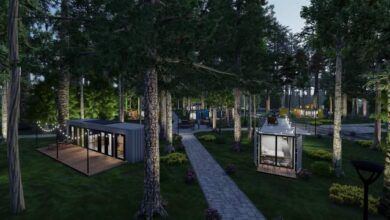The Allure of Mountain Living: Why More People Are Moving to Mountain Towns

Living in the mountains provides a special kind of peace and adventure that is difficult to obtain in other places. This way of life, tucked away between forested areas and tall peaks, encourages a closer relationship with the natural world and a more leisurely pace of life. Residents have access to natural scenery, fresh air, and plenty of outdoor activities like hiking, skiing, and mountain biking. Vail CO homes for sale often embody this serene lifestyle, with properties offering stunning vistas and easy access to recreational pursuits. The close-knit community and self-sufficient living often found in these areas foster a sense of belonging and resilience. Living in the highlands encourages a harmonious balance between solitude and social interaction, making it an appealing choice for those seeking both peace and exhilaration.
The Remote Work Revolution
Remote work has transformed living arrangements, with the pandemic causing a shift towards more tranquil and scenic locations. Mountain towns offer a perfect work-life balance, combining productivity with natural beauty, enhancing creativity and job satisfaction. Professionals can now pursue their careers while benefiting from mountain towns’ advantages because of the internet’s expanded accessibility. The social dynamics of mountain towns also provide a relaxed yet engaging professional atmosphere, with networking events, co-working spaces, and community meet-ups being key ways remote workers stay connected.
Recreational Activities and Outdoor Adventures
Outdoor enthusiasts have a playground when they live in the mountains. During the summer, there are opportunities for hiking and mountain biking, while in the winter, activities like skiing and snowboarding are available for entertainment. Mountain communities have a wide range of activities to offer, whether you’re an adrenaline addict or just want to take peaceful walks in the outdoors. Participating in these activities enhances mental and physical health, resulting in a complete lifestyle improvement.
Additionally, connecting with nature helps reduce stress and fosters a deeper appreciation for the environment. Living close to nature has been shown to reduce the symptoms of anxiety and depression significantly. Many mountain towns have beautifully maintained trails and recreational facilities.
Community and Lifestyle Benefits
The sense of community in mountain towns is often more vital than in urban areas. Residents cherish the close-knit atmosphere, where neighbors know each other and lend a helping hand. This tight-knit community dynamic fosters a greater sense of security and belonging, making it easier to form lasting relationships and support networks.
Essential services like quality education and healthcare contribute to a comfortable and fulfilling lifestyle. Many mountain towns are equipped with top-notch schools and medical facilities, ensuring that residents’ needs are well taken care of. Family-oriented activities and community events offer ample opportunities for social interaction, strengthening bonds among residents. This nurturing environment makes mountain towns particularly attractive for families and retirees alike.
Environmental Factors to Consider
Living in the mountains requires adaptation to seasonal weather changes, such as heavy snowfall or rainy seasons. Houses need to be well-insulated and equipped to handle varying conditions. Winter months may require consistent snow removal to keep roads accessible. Wildlife interactions can present challenges, and residents must be mindful of local wildlife and take precautions to protect themselves and their property. Sustainable living practices are crucial to preserve natural beauty and promote ecological well-being, helping prospective residents make informed decisions.
Financial Considerations for Mountain Real Estate
Mountain real estate investment is a wise financial choice due to its long-term appreciation in value and high demand for homes in scenic towns. Understanding local market trends can offer valuable insights for buyers. A seamless move to mountain living requires careful financial planning, taking insurance, maintenance fees, and property taxes into account. Purchasing real estate in these locations can be challenging; working with a knowledgeable real estate agent can guide you through the process.
Making the Transition: Tips and Advice
Transitioning to mountain living requires careful planning. Logistical considerations include moving arrangements, adjusting to a new lifestyle, and integrating into a close-knit community. Mental preparedness is also crucial to embrace the changes in pace and environment. Moving from a bustling city to a serene mountain town demands both physical and emotional readiness.
Establishing local ties early on helps facilitate the process of adjustment. Engaging in local events and socializing with neighbors can significantly improve one’s feeling of belonging. Because mountain settlements are usually welcoming, integration goes more smoothly there.



